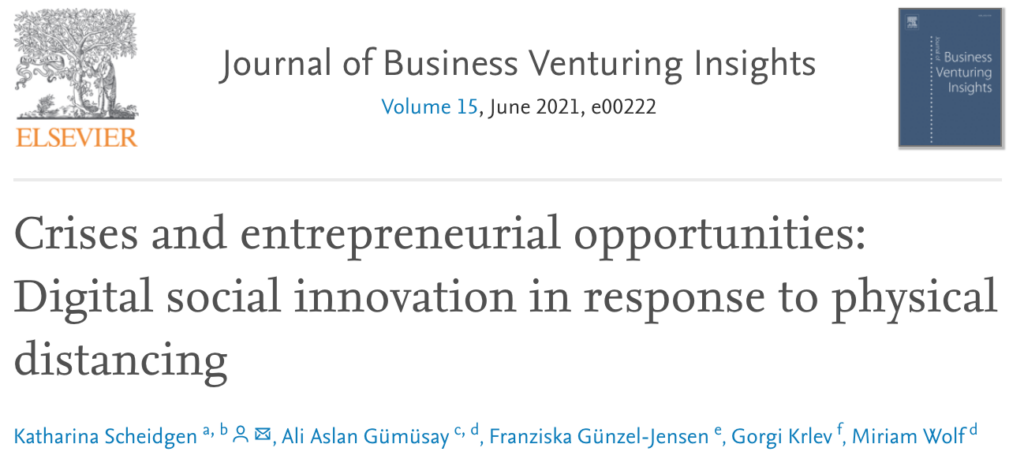New co-authored article on digital social innovation and physical distancing.
Some highlights:
- Physical distancing constraints promote digital brokering and digitized services.
- New entrepreneurial actors engage in improvised venturing to create social innovation.
- Existing ventures engage in rapid pivoting and pro-social product extension.
- Social innovation in response to crisis can be ephemeral or enduring.
Abstract: As physical distancing is a core measure of containing the spread of COVID-19, this pandemic is a crisis that has uprooted social interaction. While current research mainly focuses on crises as a challenge for entrepreneurial ventures and potential regulatory response mechanisms, we complement this research by addressing the question of how crises in general—and COVID-19’s physical distancing measures in particular—shape entrepreneurial opportunities for social innovation. Based on two rounds of data collection—desktop research mapping out 95 entrepreneurial activities in Germany and four focus groups—we find first that entrepreneurs are proactive agents in alleviating the negative consequences of the COVID-19 crisis. They do so by creating two types of digital social innovation: digital brokering and digitized services. Second, we note that negative societal consequences of crises can be buffered by shifts in entrepreneurs’ strategic orientation through improvised venturing, rapid pivoting and pro-social product extension. Third, we note variance in the persistence of changes with consequences for entrepreneurial opportunities and social innovation: Whereas some social innovation are rather ephemeral, others might endure and promise long-term impacts. We offer key insights for the literature on crisis, social innovation and hybrid organizing as well as on the implications for entrepreneurship practice and policy.
